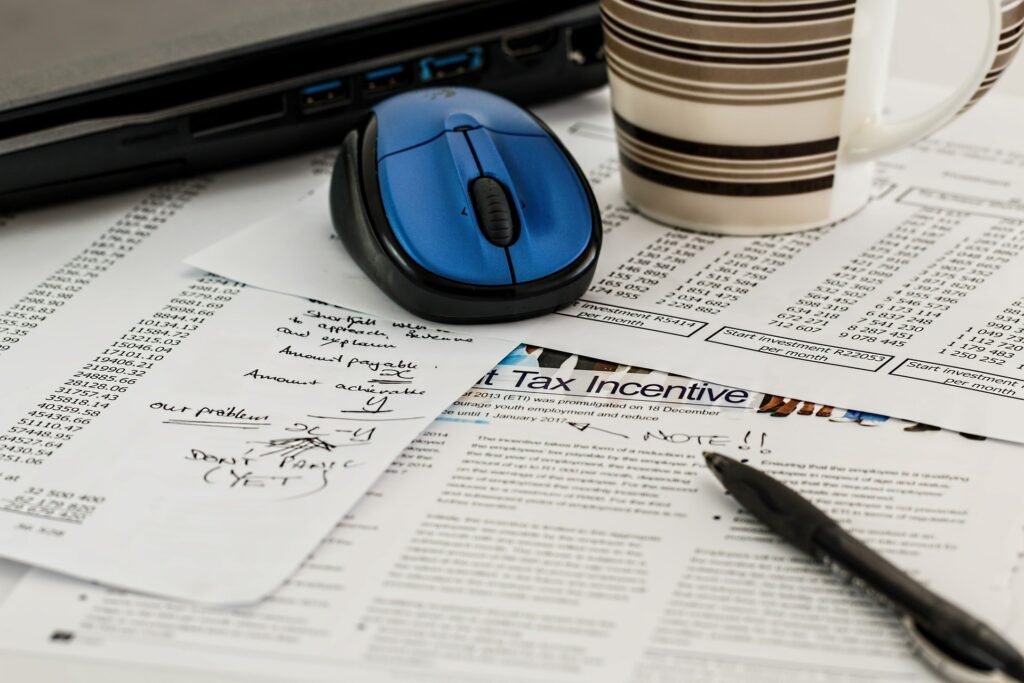Being a small business owner is costly as it is- every money count when entrepreneurs are living on the razor-thin limits and fighting for the market share. But owning and operating a small business is even costlier when you pay more taxes than you have in debt. Taxes can be stressful for a small business owner. You likely wear several hats, and the last thing you want to do is give more of your hard-earned money to the government. Thankfully, there are different small business tax tips to reduce your taxable liability as a small business owner. If you are looking for small business tax tips, consider some of the methods discussed below:
Small Business Tax Tips
Use tax filing software- While this recommendation may be a no-barrier for the small business owner interested in avoiding issues, it applies to even the tax-savviest entrepreneurs; it provides protection a small business owner may not get otherwise. Various platforms can help you to prepare and file your tax return online while backing up that filing with precision and maximum-refund guarantees. Having a covering that guarantees the accuracy of your return- and guaranteed reimbursement of any penalties or fees that you have been charged- makes every tax obstacle easier.
Keep a check on all the receipts- One of the most important tax tips for small business owners is to keep an eye on the receipts. Receipts help in creating the financial dashboard of how and where you spent your money throughout the year. Most of these receipts are for goods and services that can be deducted from your taxes, compensating the taxable income. Based on your business structure, there are certain deductions you can take for specific structures, along with deductions that apply across all the structures. Of course, keeping receipts for a whole year is a big problem; pieces of paper may get displaced or tossed.

However, some apps can capture, store, and organize all your receipts in one place. With these apps, you can import receipts from photos and forward email invoices from your inbox. This way, you can get proof of, and retain that poof, for all the expense deduction that is owned by you.
Pay for your retirement- A self-employed employee’s taxable income can be lessened by putting extra money towards a conventional retirement- the money is not taxed until the money is withdrawn in the retirement period. Small business owners who are below 50 can contribute nearly $50,000 to a traditional or Roth IRA; those who are above 50 can put about $6,500 towards their retirement savings.
Record all the expenses- One of the significant small business tax tips is to keep a record of all your expenses. For example, if you own a packer and movers’ company, you need to pay people to drive the vehicles, pack as well as unpack items, load, and unload the trucks. If you pay people in cash and forget to maintain a monthly or daily record, you can face a serious issue. This is so because your business expenses will not be correct, and you might end up paying more in the form of taxes.
Know about depreciation cuts- The tax department offers manufacturing businesses a tax deduction for the devaluation of machinery, under sections of the Income Tax Act. Along with normal depreciation, for new machinery bought in that year, you can claim extra depreciation of 20%. For instance, if you install new swing and embroidery machines for your clothing business, then apart from the usual depreciation, you can even claim an extra 20% of depreciation when the equipment is used. Another part, 35AD, makes the total capital expenditure in a few industries tax-deductible. So, be cautious of the tax laws and file your taxes the right way, so that you do not lose out on these savings.
Subtract your home office- Several small business owners operate from offices at home, but not everybody realizes that they can reduce the expenses related to that home office. These can include mortgage interest payments, insurance, utilities like internet services.
You must determine which part of your home is dedicated to running your business, but this deduction can benefit both the renters and house owners.
Deduct your car expenses- Again, the trick here when you are deducting the expenses, calculate the percentage of the time you use your car for work. From there, you can apply that percentage to the whole car expenses.
For this category of deduction, two kinds are available: the IRS’s standard mileage rate or the actual car expenses. Find out which makes the most financial sense before filing so that you can increase your savings.
Time your income as well as expenses- Timing your income includes moving it from one year to the other. You must first fix the year in which you expect to pay the most taxes. One of the significant small business tax tips is to review your present expenses before the end of every year and prepay some of that money if you want to lessen your income for the present year. You can even increase your expenses and reduce income by making expenditures like stocking up on the supplies.
Check out for carryovers- Some credits or deductions may not be used in one tax year and can be carried over into the coming years. These can include items like net operating losses, capital losses, charitable contribution deductions, and home office deductions. Maintain a record of these, so that you do not forget the next year.
Do not sell old equipment- If you want to get rid of the property that is no longer providing ROI to the business, then find out whether it would be better to dump it or sell it. Dumping is fully deductible, so find how your property may be categorized under Section 1231 to find out how you should avoid it.

Take benefit of penalty relief if you are eligible- Regardless of following these steps or the recommendations that your accountant makes, you may incur an IRS penalty. If that takes place, you must determine whether you are eligible for the penalty relief.
Some penalties, like penalties for failing to file a tax return or to pay timely, are available for penalty relief. People who can be regarded for relief include those who tried to follow the legal obligations but were not capable to meet them because the circumstances are out of their control or those who were able to resolve a problem mentioned in their penalty notice. Not everybody in these two groups qualifies, but it is worth finding out whether you do or not. And that is the money back for committing an honest mistake.
You do not need to make small business ownership financially draining than it currently is. By accounting for deductions carefully throughout the year and investigating your choices in difficult situations, you will find options you never knew existed and savings you can use.
Look for family members who can work for you- If you have family members who can help you in doing the essential tasks included in your business- say, for example, a teenager who can help mow the garden as part of your garden care business- you can add tax savings to the advantages. Hiring a family member means that you can take a business deduction for fair compensation paid to that person.

